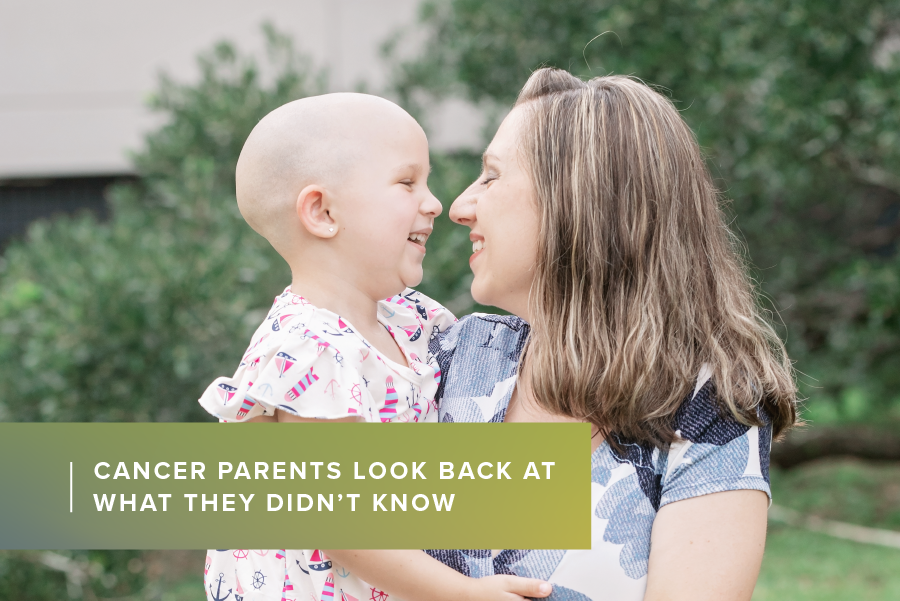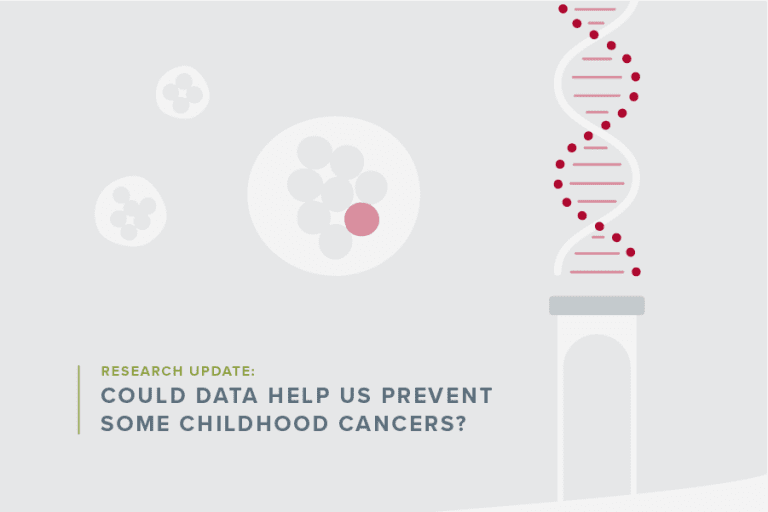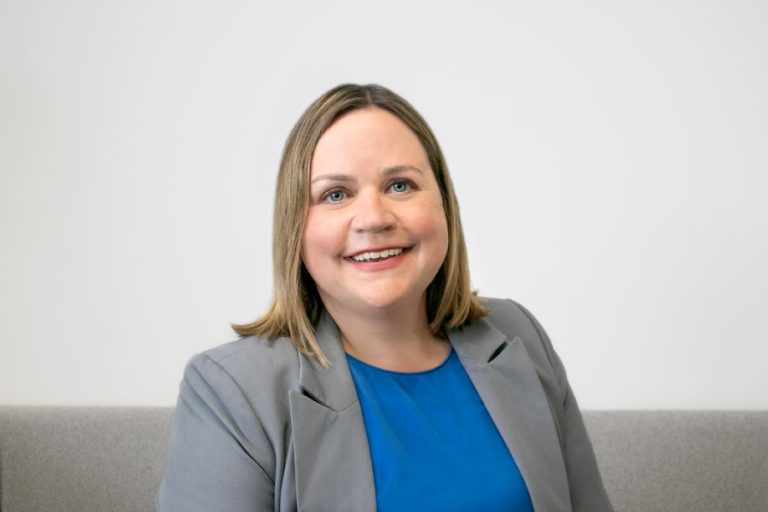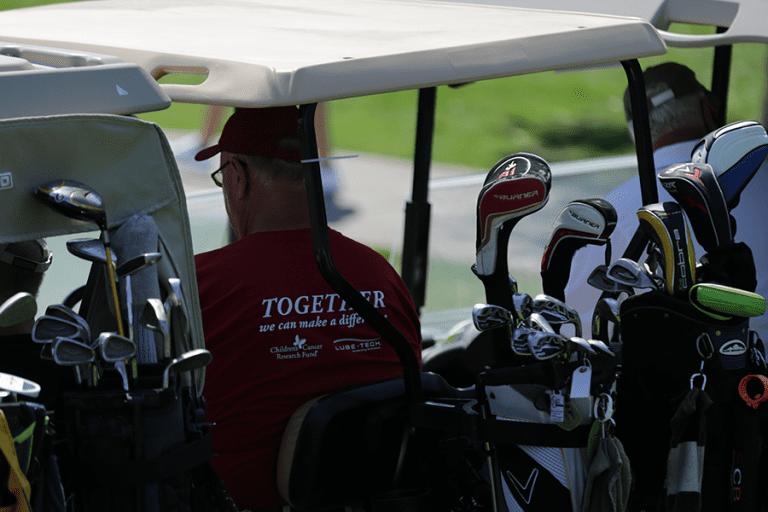This blog post was supported by our partner, Kendra Scott. From September 18-26, 20% of proceeds from Kendra Scott's Cade Bracelet – part of the brand new Scott Bros collection – will be donated to the Zach Sobiech Osteosarcoma Fund at CCRF. Learn more about the partnership here.
Every parent of a child fighting cancer has a different story. But one thing we hear over and over when talking to cancer families is this:
“I hardly knew anything about childhood cancer before it happened to my child.”
In honor of Childhood Cancer Awareness Month this September, we asked parents of kids fighting cancer to look back and remember a time where they didn’t know, and tell us what they’ve learned since then. Here are their responses.
Childhood cancer research is severely underfunded.
One of the statistics that most shocks cancer parents is this – of all the federal money that goes to cancer research, only 4% goes to childhood cancer research. Philanthropic support is harder to measure, but we know that donations to childhood cancer research lag behind donations to research for many different adult cancers. But childhood cancer is the No. 1 cause of death by disease in children, and when researchers and supporters have the resources and determination to solve it, we can make a difference for kids with even the rarest forms of childhood cancer.
“I had no idea childhood cancer research was underfunded and that often times treatment was using the same toxic drugs they've used for 30 years. I had assumed it was well funded because wouldn't it make sense to invest in children's health?” - Whitney, mom to Wyatt, a neuroblastoma survivor
More from Whitney: Read her piece, “Do you think kids with cancer like mine have died?”
“Childhood cancers receive way less funding from federal programs and private donors. Pharmaceutical companies don't care as much about developing better cures for kids because the research and development takes longer, requires more work and the drugs are often less profitable than adult cancer treatments. This is incredibly frustrating.” – Michelle Vaith, mom to Brooklyn, a leukemia survivor
“Bella’s cancer is rare, but it’s on the rise in kids, and it’s not being researched enough. When I found that out, all I could think was, ‘Why not? Why aren’t we there yet?’ And it’s because researchers don’t have the funding.” – Tabitha, mom to Bella, a hepatoblastoma survivor
“I think about it constantly. How is it that they get so little funding? They’re children. How is it that we have new treatments being developed for adults, but for our kids, it’s old protocols from the 80s or 90s? I just don’t understand how we aren’t doing more for them.” – Patricia, mom to Maurice, a rhabdomyosarcoma survivor
Learn more: Why childhood cancers are considered “too rare” to get research funding
Childhood cancer isn’t as rare as you might think.
We’ve been told over and over again that childhood cancers are rare. This is partly true – there are dozens of types and hundreds of subtypes of childhood cancer, meaning nearly all of them are classified as “rare.” But childhood cancer as a whole is more common than many cancer parents knew before their child was diagnosed.
Each year in the U.S., there are an estimated 15,780 children between the ages of birth and 19 who are diagnosed with cancer. One in 285 children in the U.S. will be diagnosed with cancer before their 20th birthday. And some cancers are on the rise in kids – diagnoses of hepatoblastoma, a type of liver cancer, are increasing as much as 3% per year, and incidences of leukemia have increased by about 35%. Cancer is the most common cause of death by disease in children in the U.S.
“I didn't realize how common it actually was. I didn't know how often children are misdiagnosed initially because pediatricians think childhood cancer is rare, but it’s not. I didn't realize there were so many types and subtypes. I didn't know that you might not always live close to where you need to go for treatment.” – Whitney, mom to Wyatt, a neuroblastoma survivor
You can help: Our most popular fundraising ideas
The cancer experience isn’t over when treatment ends.
Because childhood cancer research is so underfunded, some treatments are decades older than the kids themselves. These old treatments are often toxic, leaving survivors with lifelong side-effects like heart problems, hearing loss, infertility and more. Kids and families also deal with mental health issues like anxiety and depression after treatment. The cancer experience goes on long after treatment ends, and becoming a survivor doesn’t mean the fight is over. By funding research, we can create better, safer treatments that leave survivors whole and healthy.
“Cancer treatment for children is toxic, and that affects them for the rest of their lives. People would often comment how high the rate of survivorship is, but had no idea how big the cost of survival can be. Almost all kids who survive cancer have one or more long-term effects of their treatment. They never truly get to go back to being a 'normal kid'.” – Michelle, mom to Brooklyn, a leukemia survivor
“It's never over. If your child passes, there is never a day they aren't grieved and missed. If you child survives, there is still the specter of relapse and the long term effects of treatment. Families are forever changed.” - Whitney, mom to Wyatt, a neuroblastoma survivor
Read More: Sara’s Story – What it Means to Survive
Childhood cancer impacts the whole family and the broader community.
When a child is diagnosed with cancer, it rocks the whole family. Parents take months off work or leave their jobs to help their child through treatment. Siblings worry that their brother or sister won’t survive, and their lives are changed forever when they don’t. Siblings also struggle when treatment means they get less of their parents’ limited time and attention. The family needs to lean on their support system more than ever, meaning for every diagnosis of childhood cancer, a whole community is affected.
Advice: Read our blog post "5 Ways to Help a Sibling of a Cancer Patient Feel Important."
“[My daughters] would see me flustered with Amaiyah and think, ‘gosh, if you just took the pills and did what you were supposed to do, you wouldn’t have to take Mom away from us again,’ But this is just what cancer looks like sometimes – it runs the show.” – Tequila, mom to Amaiyah, a brain tumor survivor. Read Amiayah’s story here.
“My oldest daughter is very much a realist, so the first thing she asked was if Lily could die. I said yes, that’s a possibility, but if you have to have cancer, Lily’s is the best kind you can have – around 90% of kids with Lily’s type of leukemia survive, and we’re going to do everything we can to keep her in that 90%.” – Tiffany, mom to Liliana, a leukemia survivor. Read Liliana’s story here.
“The impact childhood cancer has on the family as a whole is not something that anyone can be prepared for. The whirlwind that follows a family along this journey can only try to be conveyed to family and friends. However, we have been overwhelmed and surprised by the amount of support that is out there. There are so many great people that are willing to support the families as much as they possibly can.” – Kyle, dad to Harper, a leukemia survivor. Read Harper’s story here.
Start a fundraiser for kids fighting cancer
One of the best ways you can help a child with cancer is to start a fundraiser to raise money for cancer research. No fundraising idea is too big or too small to make a lasting impact in the life of a child with cancer.




